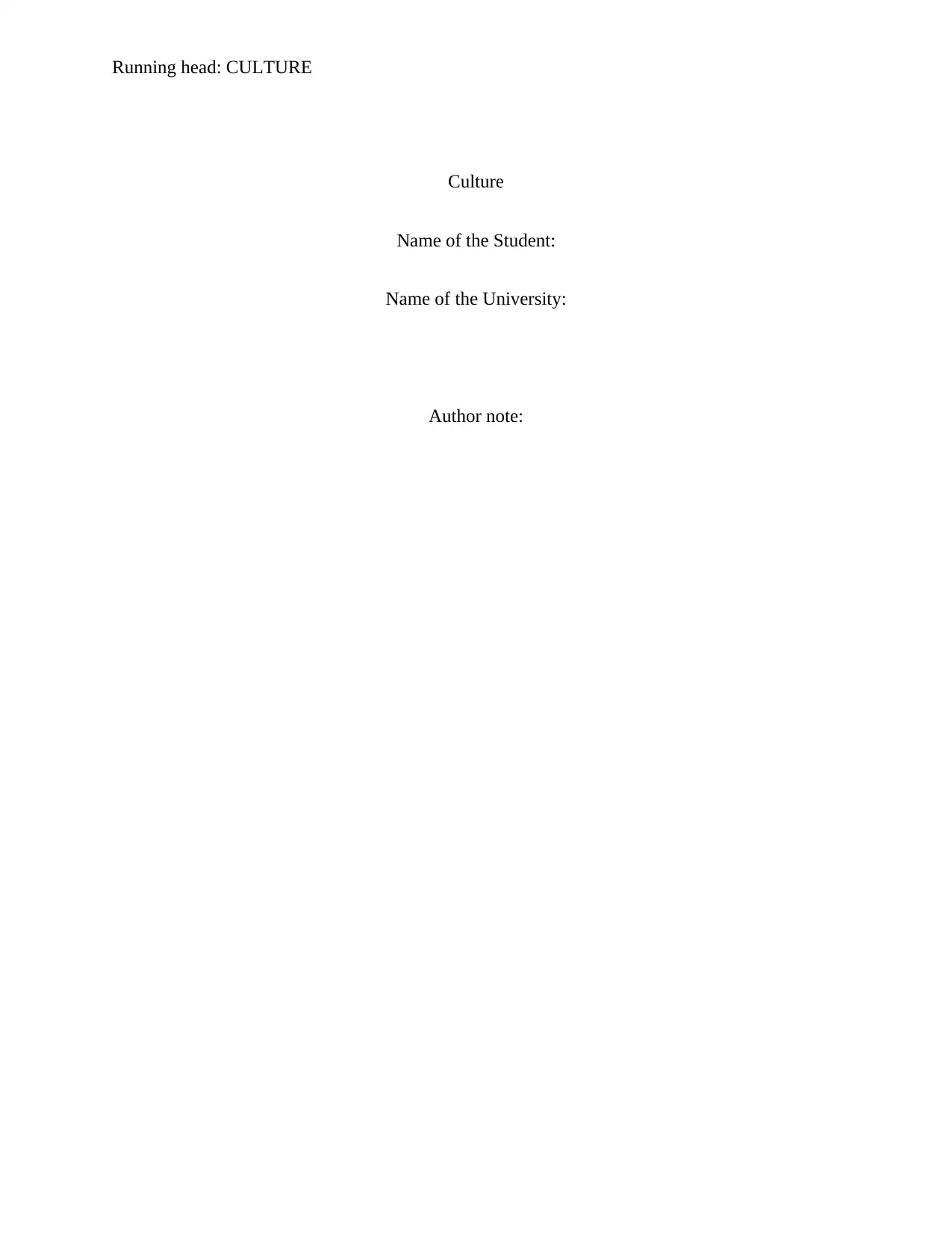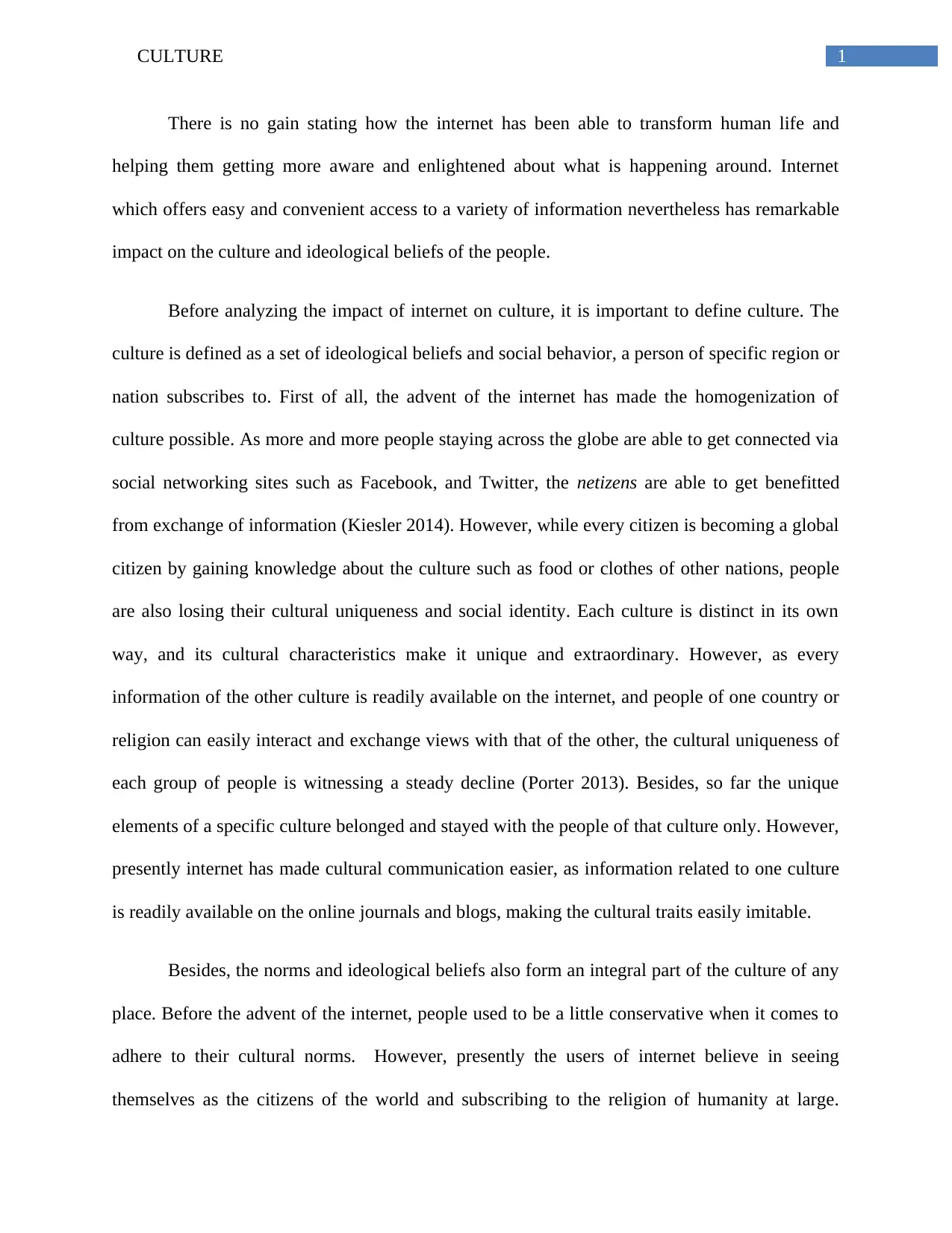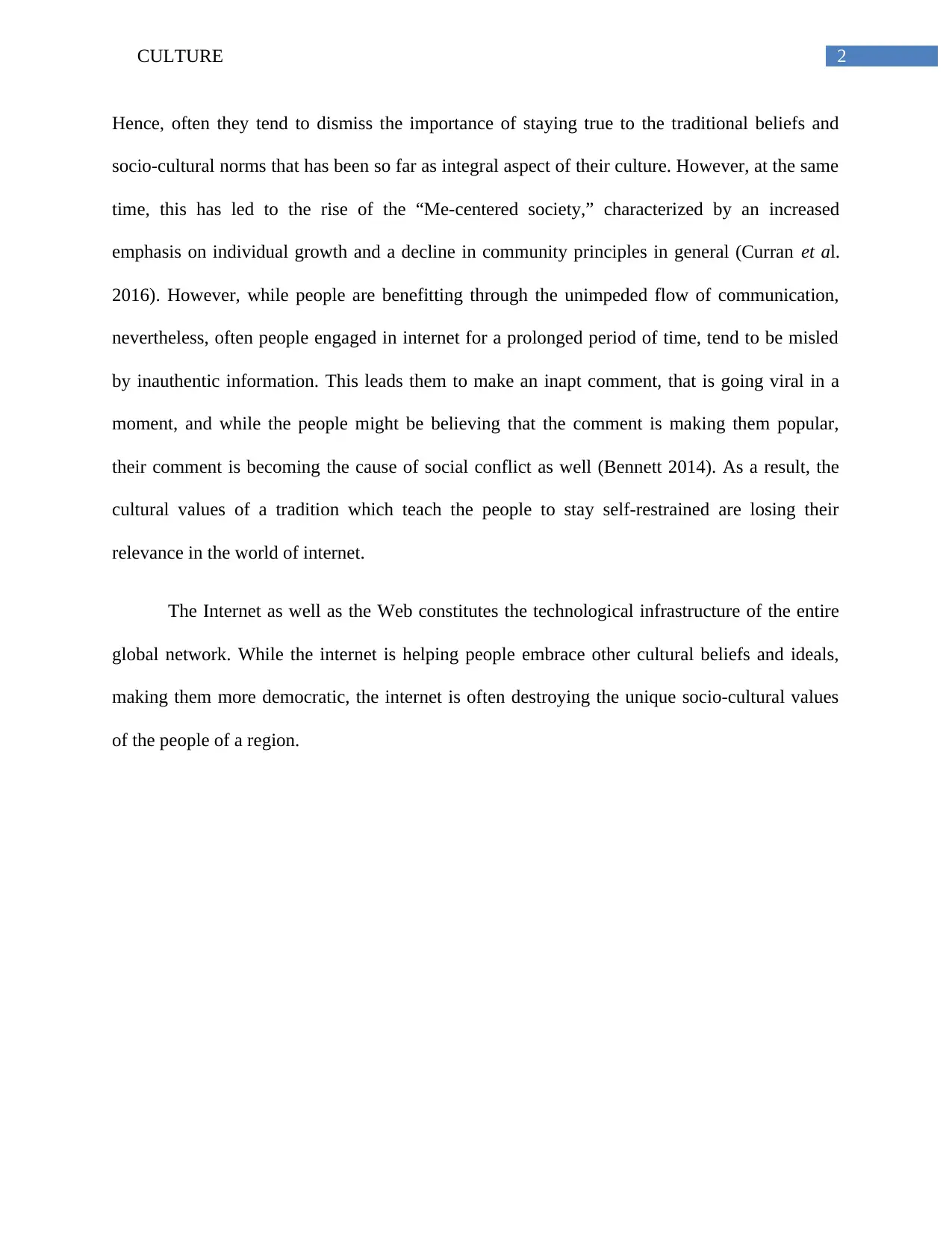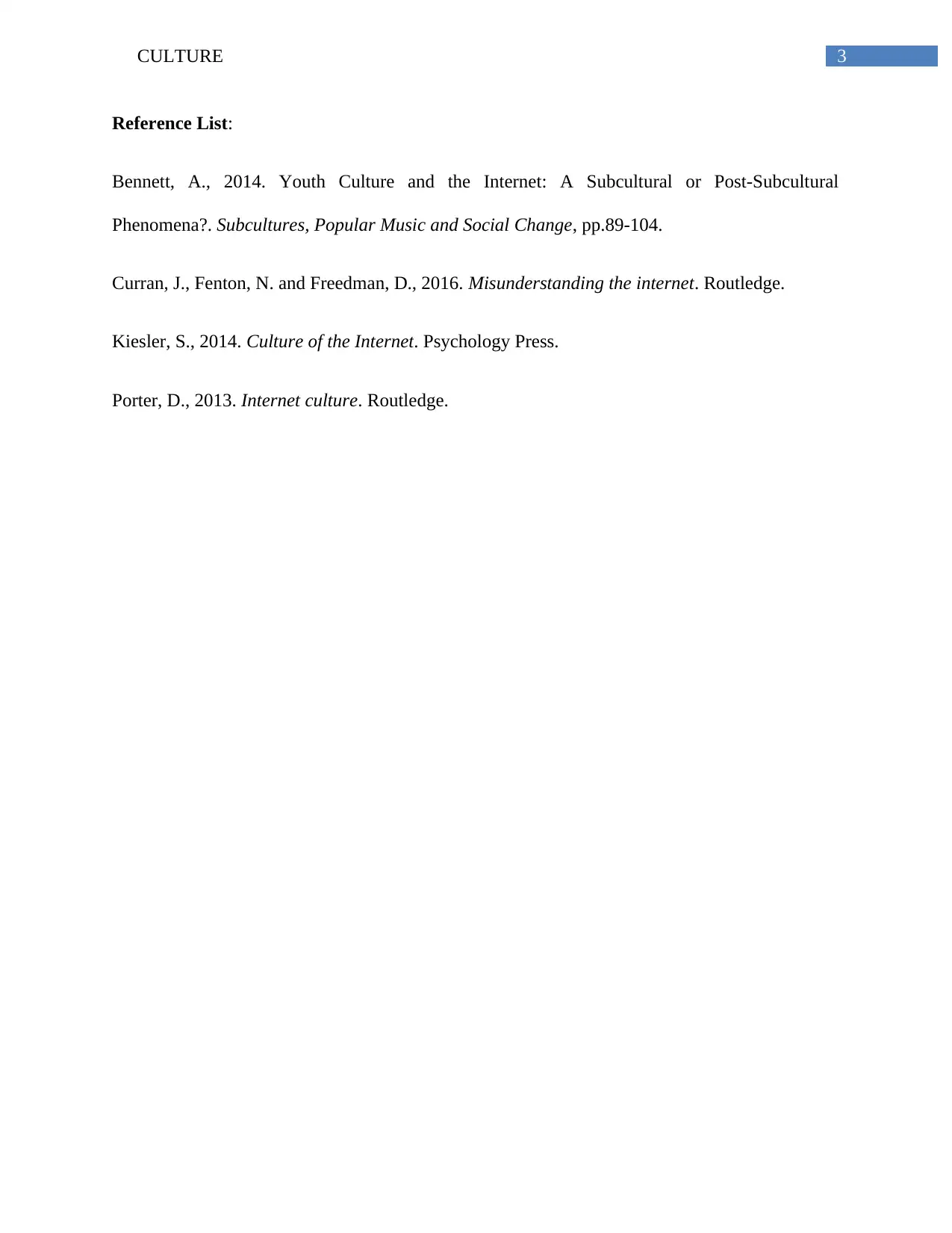The Internet's Transformation: Culture, Identity, and Social Impact
VerifiedAdded on 2019/11/19
|4
|719
|426
Essay
AI Summary
This essay analyzes the profound impact of the internet on culture, exploring how it has transformed human life and cultural identities. It defines culture as a set of ideological beliefs and social behaviors, then discusses how the internet facilitates cultural homogenization through social networking and easy access to information. While the internet promotes global citizenship by enabling the exchange of information, it also leads to a decline in cultural uniqueness. The essay examines how the internet makes cultural traits easily imitable and influences norms and beliefs, potentially leading to a "Me-centered society." It also addresses the spread of inauthentic information and its role in social conflict, ultimately arguing that the internet, while fostering democratic ideals, can also undermine unique socio-cultural values. The essay references several academic sources to support its arguments.
1 out of 4







![[object Object]](/_next/static/media/star-bottom.7253800d.svg)